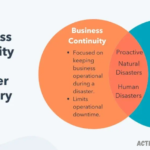The Financial Services Forum is a prominent economic policy organization composed of the chief executive officers (CEOs) from the eight most extensive and most diversified U.S. banks. This nonpartisan coalition of business leaders advocates for policies that support a stable, efficient, and productive financial system. The Forum addresses key issues such as savings and investment strategies, market liquidity, global competitiveness, and economic inclusion.
What Is the Financial Services Forum?
The Financial Services Forum is a nonpartisan economic policy organization made up of the chief executive officers (CEOs) from the eight most extensive and most diversified U.S. banks. The Forum advocates for policies that promote a stable and efficient financial system and addresses a wide range of issues, including savings and investment, market liquidity, global competitiveness, and economic inclusion. The organization plays a key role in shaping financial policies that impact both the U.S. economy and the international financial landscape.
The Financial Services Forum focuses on fostering open dialogue among business leaders, regulators, and policymakers. It seeks to ensure that the U.S. financial system remains stable and competitive in the global market. It works to address critical challenges such as market liquidity, financial inclusion, saving and investment, and international competitiveness.
The mission of the Financial Services Forum
The primary mission of the Financial Services Forum is to promote a sound and efficient financial system. This is achieved through a combination of advocacy, policy analysis, and direct engagement with government officials, industry stakeholders, and regulators. Key aspects of the Forum’s mission include:
Advocacy for Policy Development: The Financial Services Forum advocates for policies that support the stability, growth, and competitiveness of the financial services sector in the U.S. and globally. The organization focuses on ensuring that the economic system functions effectively, providing the necessary capital and liquidity for businesses and individuals to thrive.
Promoting Financial Inclusion: One of the Forum’s core objectives is to support initiatives that enhance financial inclusion, ensuring that underserved and marginalized communities have access to essential financial services, such as savings accounts, loans, and investment opportunities.
Market Liquidity and Efficiency: The Forum works to improve market liquidity, enabling the free flow of capital and investments. It also aims to streamline financial regulations to ensure that markets operate efficiently without unnecessary barriers to innovation.
Global Competitiveness: As the financial world becomes increasingly interconnected, the Forum advocates for policies that enhance the global competitiveness of U.S. banks and the overall economic system. This includes engaging with international regulatory bodies and policymakers to ensure a level playing field for U.S. institutions in the global marketplace.
Accomplishments of the Financial Services Forum
Since its inception, the Financial Services Forum has made significant contributions to shaping the financial policy landscape in the United States and abroad. Some of its most notable accomplishments include:
- Influencing Financial Regulation: The Forum has played an essential role in shaping regulatory frameworks that govern the financial services industry. Through active engagement with policymakers, it has helped ensure that regulations strike a balance between protecting consumers and allowing businesses to innovate and grow.
- Advancing Financial Inclusion: The Forum has been a strong advocate for financial inclusion efforts, supporting policies that make banking services accessible to all. It has championed initiatives to expand access to credit, encourage savings, and provide affordable financial products for underserved populations.
- Supporting Market Stability: During financial crises, the Financial Services Forum has worked closely with government officials to promote market stability. For example, during the 2008 financial crisis, the Forum was actively involved in discussions surrounding the Troubled Asset Relief Program (TARP) and other efforts to stabilize the economy.
- Global Engagement: The Forum has played an essential role in advocating for U.S. banks in the global regulatory environment. It has worked with international regulators to ensure that U.S. institutions are subject to fair and consistent standards, helping them maintain a competitive edge in the global marketplace.
- Thought Leadership on Economic Issues: Through research, publications, and public speeches, the Financial Services Forum provides valuable insights into key economic and financial issues. The organization’s thought leadership has contributed to informed discussions on topics like tax policy, the role of technology in finance, and the future of digital currencies.
Frequently Asked Questions
What is the Financial Services Forum?
The Financial Services Forum is an economic policy organization composed of the CEOs of the eight most extensive and most diversified U.S. banks. It advocates for policies that ensure a stable, efficient, and productive financial system. The Forum focuses on issues such as financial inclusion, market liquidity, global competitiveness, and fostering a robust economic environment.
What is the mission of the Financial Services Forum?
The Financial Services Forum’s mission is to promote a sound and efficient financial system by advocating for policies that encourage market stability, economic growth, and competitiveness. The organization also works to improve financial inclusion and ensure that the financial system meets the needs of all individuals and businesses.
Who are the members of the Financial Services Forum?
The Financial Services Forum is made up of the CEOs of the eight most extensive and most diversified U.S. banks. These banks represent a broad range of financial services, including retail banking, investment banking, and asset management. The membership includes prominent institutions like JPMorgan Chase, Bank of America, Citigroup, Wells Fargo, and others.
How does the Financial Services Forum influence policy?
The Forum influences policy by advocating for changes and providing recommendations to government officials, regulators, and other industry stakeholders. Through research, direct engagement with policymakers, and public statements, the Forum works to shape financial regulations and legislation that impact the stability and competitiveness of the economic system.
How does the Financial Services Forum support financial inclusion?
The Financial Services Forum promotes policies that make financial services more accessible to all individuals, particularly those from underserved or low-income communities. This includes advocating for policies that encourage affordable banking services, access to credit, and tools for savings and financial management.
What role does the Financial Services Forum play in financial crises?
During financial crises, the Financial Services Forum has been involved in efforts to stabilize the economic system. It has worked with government officials to develop measures such as bailout programs, financial reforms, and other initiatives aimed at restoring confidence in the markets and minimizing economic disruptions.
How does the Financial Services Forum engage with international issues?
The Financial Services Forum advocates for U.S. banks in the international arena by engaging with global regulators and policymakers. It works to ensure that U.S. institutions are subject to fair regulatory standards and have a level playing field in the worldwide market. The Forum also monitors international financial trends and contributes to global policy discussions.
What accomplishments has the Financial Services Forum achieved?
Some of the Forum’s key accomplishments include influencing financial regulation, advocating for financial inclusion, supporting market stability during the 2008 financial crisis, and helping U.S. banks remain competitive globally. The Forum has also provided thought leadership on issues such as tax policy and financial technology.
Conclusion
The Financial Services Forum plays a vital role in shaping the financial landscape of the United States and beyond. By bringing together the CEOs of the nation’s largest and most diversified banks, the Forum provides a powerful platform for advocating policies that ensure a stable, efficient, and competitive financial system. Through its focus on key issues such as financial inclusion, market liquidity, regulatory reform, and global competitiveness, the Financial Services Forum has made significant contributions to both the U.S. economy and the broader global financial community.
As the financial industry continues to evolve, the Forum’s work remains essential in addressing emerging challenges and promoting policies that benefit both businesses and consumers. Its commitment to fostering collaboration, providing thought leadership, and influencing sound policy decisions ensures that the financial services sector remains resilient, inclusive, and prepared for the future. The Financial Services Forum continues to be a crucial organization in shaping the future of financial systems worldwide.








